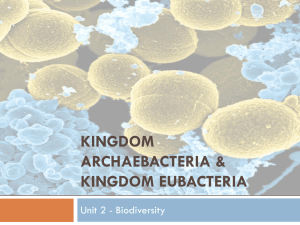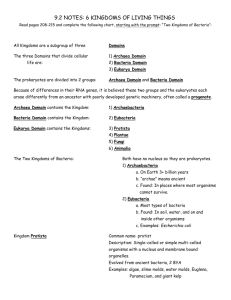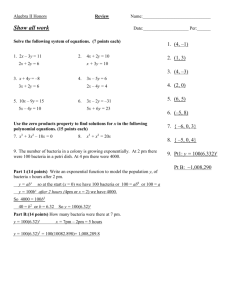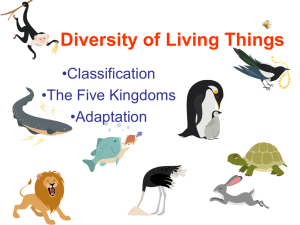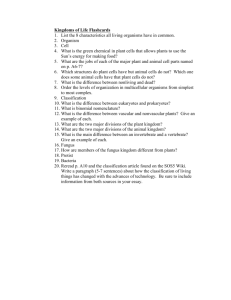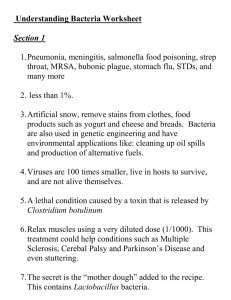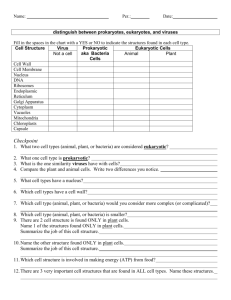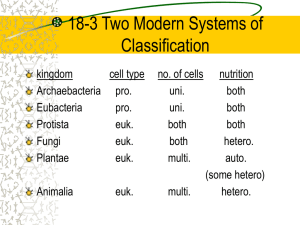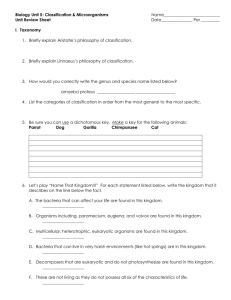The Eubacteria Kingdom… Eu Live All Over!
advertisement
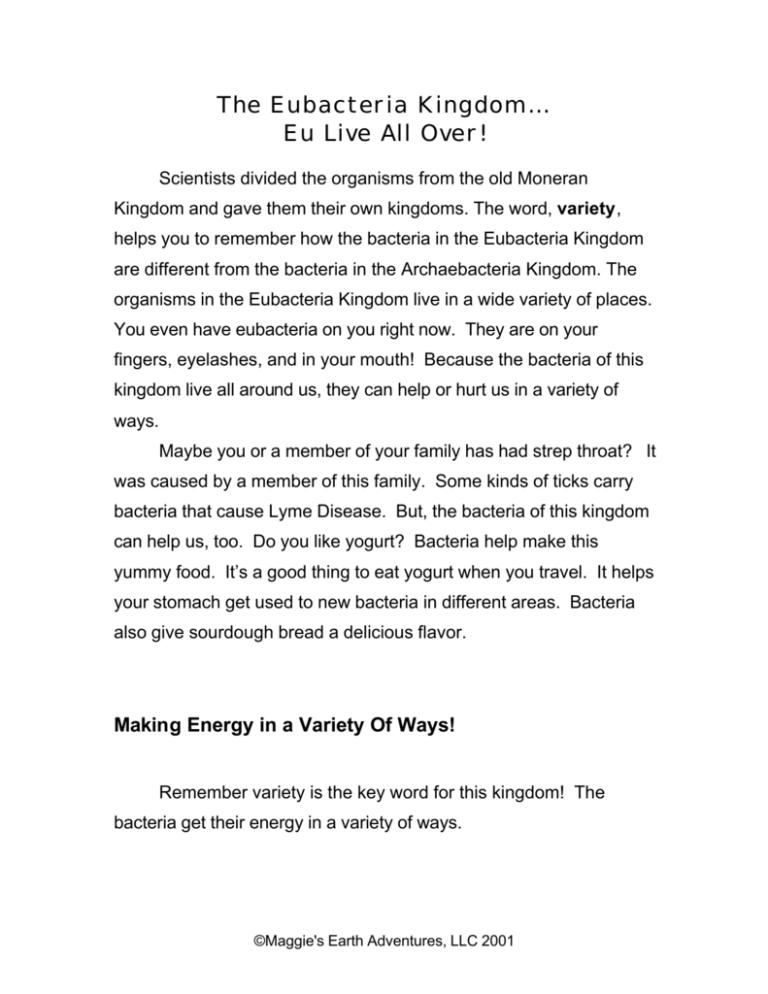
The Eubacteria Kingdom… Eu Live All Over! Scientists divided the organisms from the old Moneran Kingdom and gave them their own kingdoms. The word, variety, helps you to remember how the bacteria in the Eubacteria Kingdom are different from the bacteria in the Archaebacteria Kingdom. The organisms in the Eubacteria Kingdom live in a wide variety of places. You even have eubacteria on you right now. They are on your fingers, eyelashes, and in your mouth! Because the bacteria of this kingdom live all around us, they can help or hurt us in a variety of ways. Maybe you or a member of your family has had strep throat? It was caused by a member of this family. Some kinds of ticks carry bacteria that cause Lyme Disease. But, the bacteria of this kingdom can help us, too. Do you like yogurt? Bacteria help make this yummy food. It’s a good thing to eat yogurt when you travel. It helps your stomach get used to new bacteria in different areas. Bacteria also give sourdough bread a delicious flavor. Making Energy in a Variety Of Ways! Remember variety is the key word for this kingdom! The bacteria get their energy in a variety of ways. ©Maggie's Earth Adventures, LLC 2001 Some kinds of these bacteria need other forms of life to get energy. They are called parasites because they take nutrition from other living things. Other bacteria in this kingdom are called saprobes. This means they feed on dead organisms. Saprobes help us to recycle. They may live, work, and eat in your garden compost pile! Have you ever heard the term, decomposers? Saprobes are decomposers. Other kinds of bacteria in this kingdom can make their own food. How does a one-celled organism make food? Simple – it uses the sun’s energy. This is called photosynthesis. You might see bacteria like this clumped together in ponds, streams, or wet parts of the land. Eu Can Sing It! Make up a song to the tune of He’s Got the Whole World In His Hands, We Are the World, It’s A Small World or another song about the Eubacteria Kingdom. Tell where these organisms are found and what they might do. ©Maggie's Earth Adventures, LLC 2001
